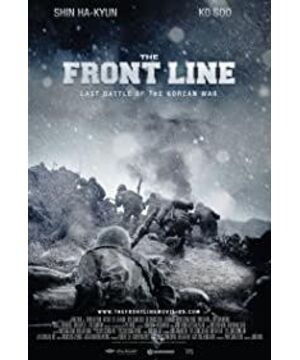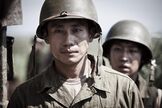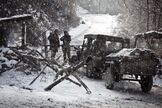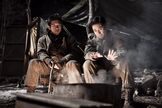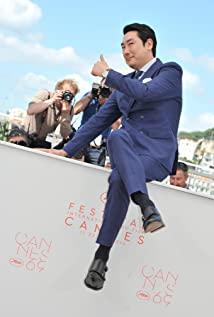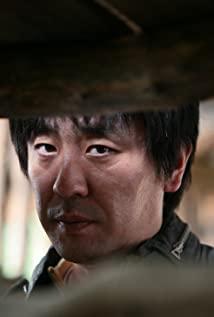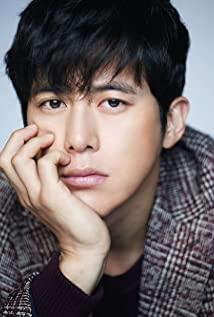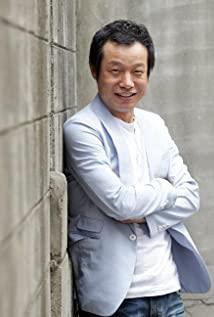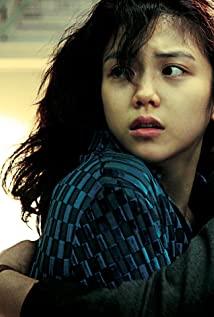Since the "Flag of Tai Chi" in 2004, there have been few high-level war-themed movies in South Korea. In 2011, "Highland War" finally let us see the great work of Korean directors again. The film won the Best Picture Award at the 48th Golden Bell Awards in South Korea, and will compete with Zhang Yimou's "The Thirteen Hairpins of Jinling" for this year's Oscar for Best Foreign Language Film. First of all, there is no doubt about the level of special effects production of the Korean war scenes, China has been left far behind. Feng Xiaogang also entrusted the war scene of "Assembly" to the production team of Han Zuo for this reason. The hail of bullets and the bloody war scenes are comparable to Hollywood in terms of realism and shock. Secondly, Korean directors have already had considerable depth and height in their thinking about war. The descriptions of war in Chinese films for decades have always been in fairy tale format: the enemies are all villains who are afraid of death, and we are all heroes, relying on the tenacity and "Dong Cunrui" style similar to the "Five Heroes of Langya Mountain". Be brave and you will be victorious. Americans have long been thinking about the Second World War, the Vietnam War, and the Korean War, from the early days of "Apocalypse of War", "Field Platoon" and "The Deer Hunter" to "Saving Private Ryan" and "Saving Private Ryan" in recent years. The Banners of Our Fathers" and so on, all objectively analyze and discuss the human nature in war, the impact of war, etc. These films play a very important role in people's understanding of war and understanding of soldiers. As can be seen from "Highland War", the thinking of South Korean directors has also begun to move closer to this aspect. Zhang Xun, standing from a pertinent and critical perspective, reflects the impact of the entire Korean War on the body and mind of the people from the war before the armistice. The damage caused also high-profile criticism of the war planners. There are many unforgettable plots and scenes in the movie: The captain played by "Gao Xiu" saw the opponent's female sniper "Two Seconds" in the scope, and she was actually the girl in his favorite photo. kill. Jin Eun Park carried the captain played by "Go Soo" back to the camp. Shin Il-young, who relied on morphine to anesthetize himself, was in constant pain and had to inject himself with morphine. Jin Eun Park stopped him and said: If it hurts, don't bear it anymore, just cry. The last 12 hours of battle is the highlight of the film, very classic: Lieutenant Kang Eun Park stabs his bayonet into the "two seconds" (played by Kim Yubin, who made a bold appearance in "Bat"), which had been given chocolate and let go. The beautiful girl in the show); the young captain Shin Il-young was killed by the Joseon Captain (played by Ryu Seung-ryong), and a tear slowly flowed from his eyes; finally, Jiang Eun-pu walked into the hut and saw that the Joseon Captain was drinking, so he silently used the North Korean match ignited his hand Han Fang's cigarette, the Korean captain said that he had forgotten why he was fighting, and gradually closed his eyes after speaking. At this time, the official armistice notice was broadcast on the radio. Jiang Eunpu left the dead Korean captain and walked across the highland where the corpses echoed with the sound of the radio. battlefield. Korean "male" movies always have a special temperament. The toughness of Korean men comes from the bones, not the muscles of Americans.
View more about The Front Line reviews


